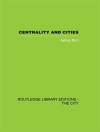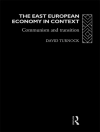This book makes an important contribution to the ongoing debate over the emergence of an early modern ‘public sphere’. Focusing on the petition-like form of the loyal address, it argues that these texts helped to foster a politically aware public by mapping shifts in the national ‘mood’. Covering addressing campaigns from the late-Cromwellian to the early Georgian period, the book explores the production, presentation, subscription and publication of these texts. It argues that beneath partisan attacks on the credibility of loyal addresses lay a broad consensus about the validity of this political practice. Ultimately, loyal addresses acknowledged the existence of a ‘political public’ but did so in a way which fundamentally conceded the legitimacy of the social and political hierarchy. They constituted a political form perfectly suited to a fundamentally unequal society in which political life continued to be centered on the monarchy.
Tabella dei contenuti
Introduction
1 Petitions, oaths and addresses: subscriptional activity during the civil wars
2 Cromwell’s trunks: the origins of the loyal address, 1658–61
3 Addresses, abhorrences and associations: subscriptional culture and memory in the 1680s
4 Adversarial addressing, 1701–10
5 Who were the ‘public’? Identifying the addressers
6 The performance of loyalty: ritual in loyal addressing
7 From subjects to objects: the language of loyalty
Conclusion
Index
Circa l’autore
Anthony Milton is Professor of Early Modern British History at the University of Sheffield












